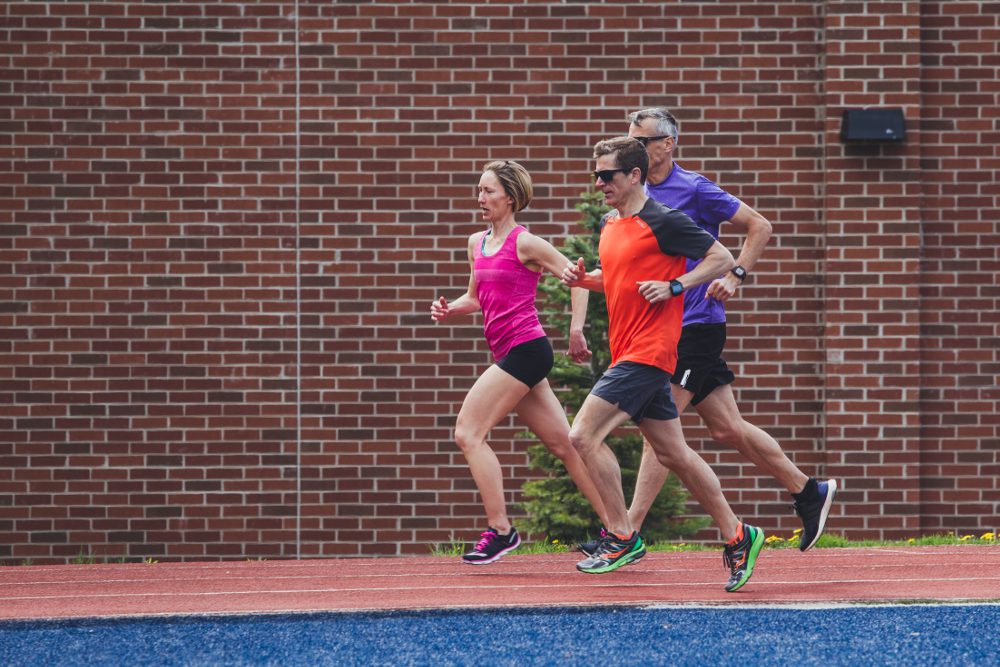When it’s okay to skip out on your workout
While gutting it out is often a worthwhile endeavour, sometimes it's better to just skip the run entirely or cut the workout short


Whether it’s an easy run, a long run or a workout, in most cases you’re better off just gutting it out and finishing. Even if you don’t run quite as fast or as far as you’d hoped to, whatever effort you give is still valuable and will contribute to your overall health and fitness. But sometimes, bailing on a planned run is actually the better idea. Here’s when:
RELATED: Why the length of your rest breaks can make or break your workout
You’re (very) sick
Having a cold or runny nose doesn’t exactly count here, but a fever, the flu or an infection mean you should probably take a break from hard training. Hard or long efforts can weaken an already compromised immune system opening the door for further sickness or a delayed recovery. If you’re really sick, take some time completely off, rest, hydrate and possibly see a doctor. If you insist on running, keep it short and easy. The rule of thumb is that if it’s above the neck (such as a headcold), you can still run but back off as necessary. If it’s below the neck (such as in the chest/lungs), you should avoid hard training until things clear up.
You’re (really) tired
Being tired is an all-too-common experience these days. Most of us don’t sleep as much or as well as we should (seven or eight hours a night) and once you add all the responsibilities at home and at work, that doesn’t leave us with much time or energy for training. And yet somehow we find (or better still, make) the time to run and train.
Running through a bit of fatigue is more likely a necessity than a choice. Oftentimes, you’ll be surprised how good you feel after a few easy miles. Occasionally though, if you’re feeling totally drained and lack the energy or enthusiasm, it may be necessary to cut short a workout, bail on a run or reschedule a long run to another day. Be honest about how you feel, give the run a try and if you’re really struggling to find your stride, call it and save yourself for another day.
Pay attention to external conditions too. Weather, the route you run and the time of day can all affect how you feel when training. Start the run and see how you feel after 10-15 minutes. Run a few strides or start your planned intervals (or hills, tempo, etc.). If you’re well off your target pace or just don’t feel it, scale back and possibly bail altogether if it’s not your day.
You’re (overly) stressed
Just as being sleep-deprived or fatigued from life’s daily toil will affect your energy, so too will stress– be it physical, emotional or even social. Finding ways to regulate and cope with stressful situations is an important and valuable skill in and of itself. For many, running is an effective means of relaxing, unwinding and escaping, if only for a half-hour each day. Sometimes though, stress can carry over on a run leaving you unmotivated or unable to complete a workout. Be aware of if, and to what extent, you feel this happening. Do try to start your pre-planned run or workout, but if you find yourself falling behind or working harder than you should be, consider pulling back.
You’re injured (even a little bit)
This one should be a no-brainer but you’d be amazed at what we can talk ourselves into doing. If you’re injured (be it some shin splints, a wobbly knee, plantar fasciitis, etc., etc.) resist the urge to run hard until the issue is well under control. And by ‘under control’ we mean little, preferably no pain while running. If your issue gets worse while you’re running, stop immediately. Grimacing through the last few intervals or miles only to limp around later could potentially set you back weeks or even months. On the other hand, if you identify an issue and address it immediately, you might only miss a few days. Knowing the difference between the pain associated with an injury versus the routine aches and soreness of training is an important skill to develop and requires experience. Remember that it’s better to be safe than sorry so consider being conservative and proactive.



